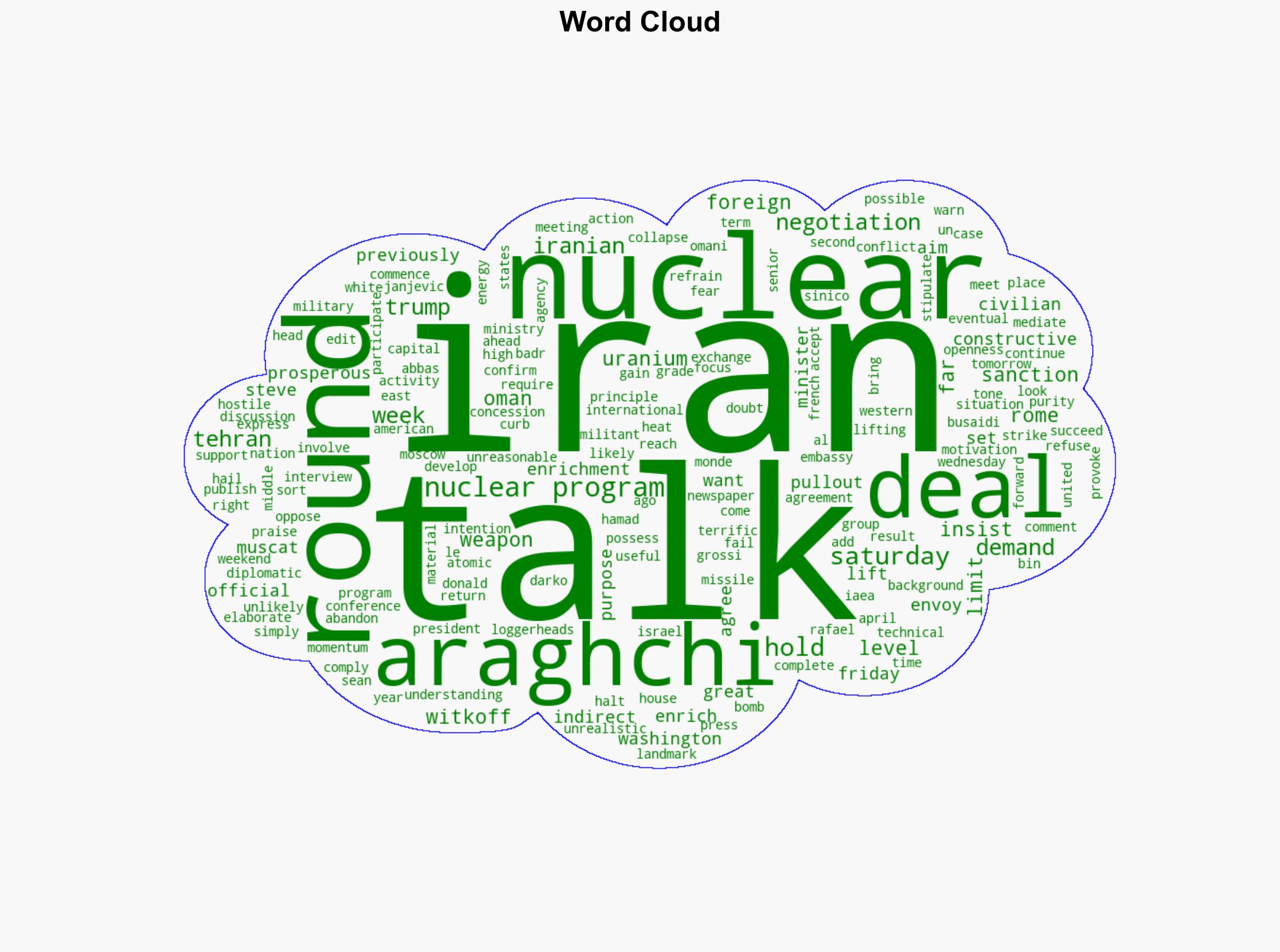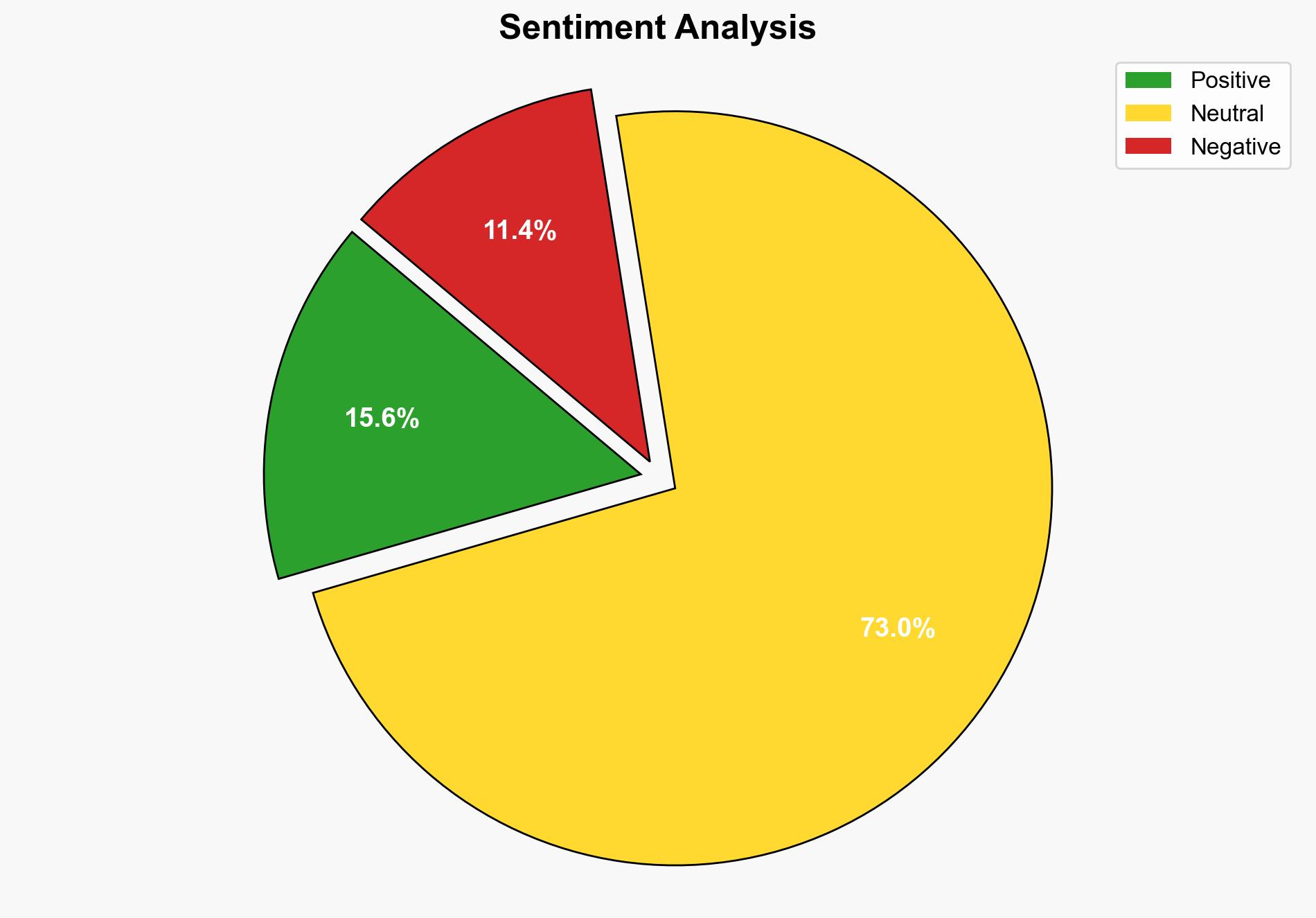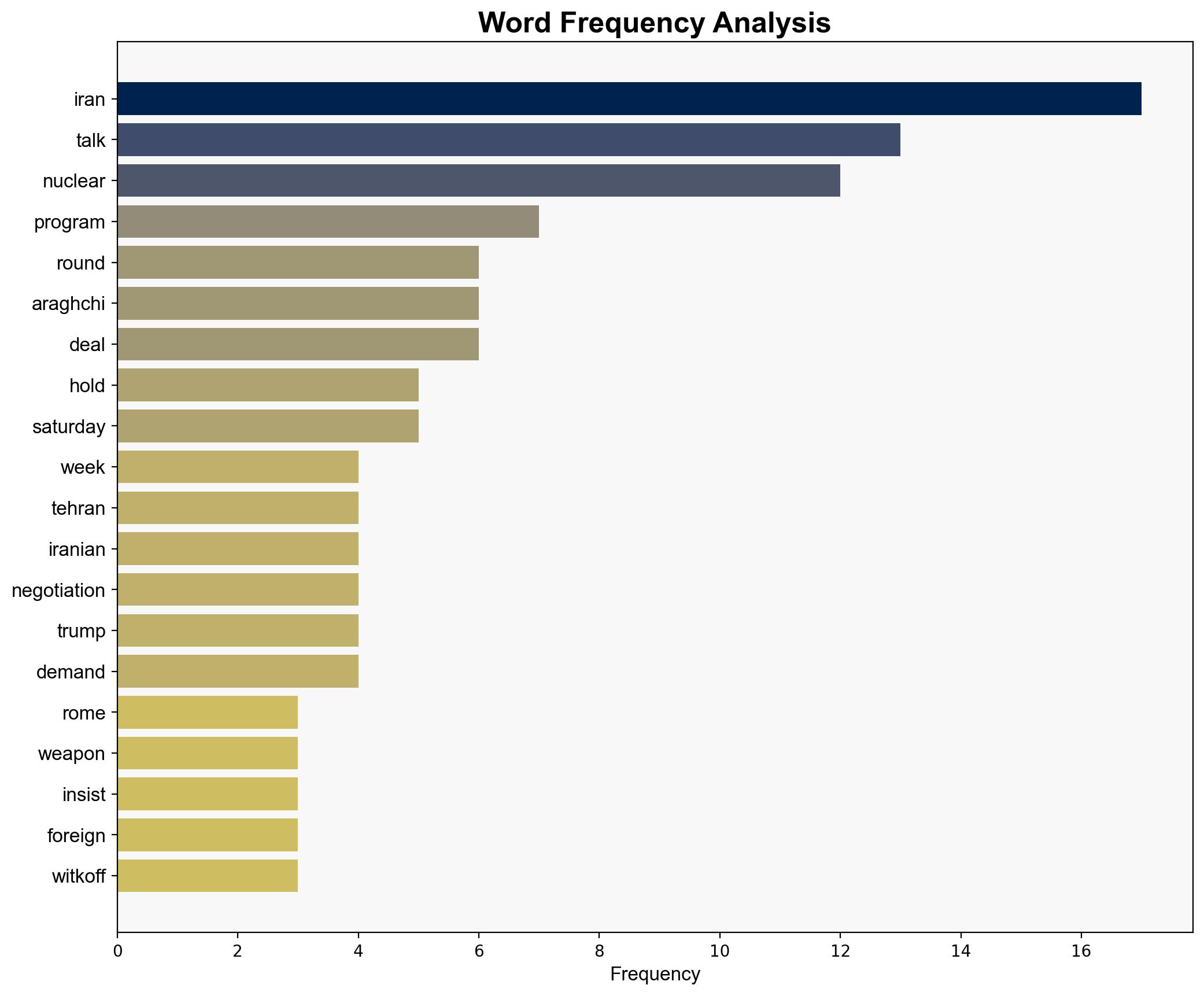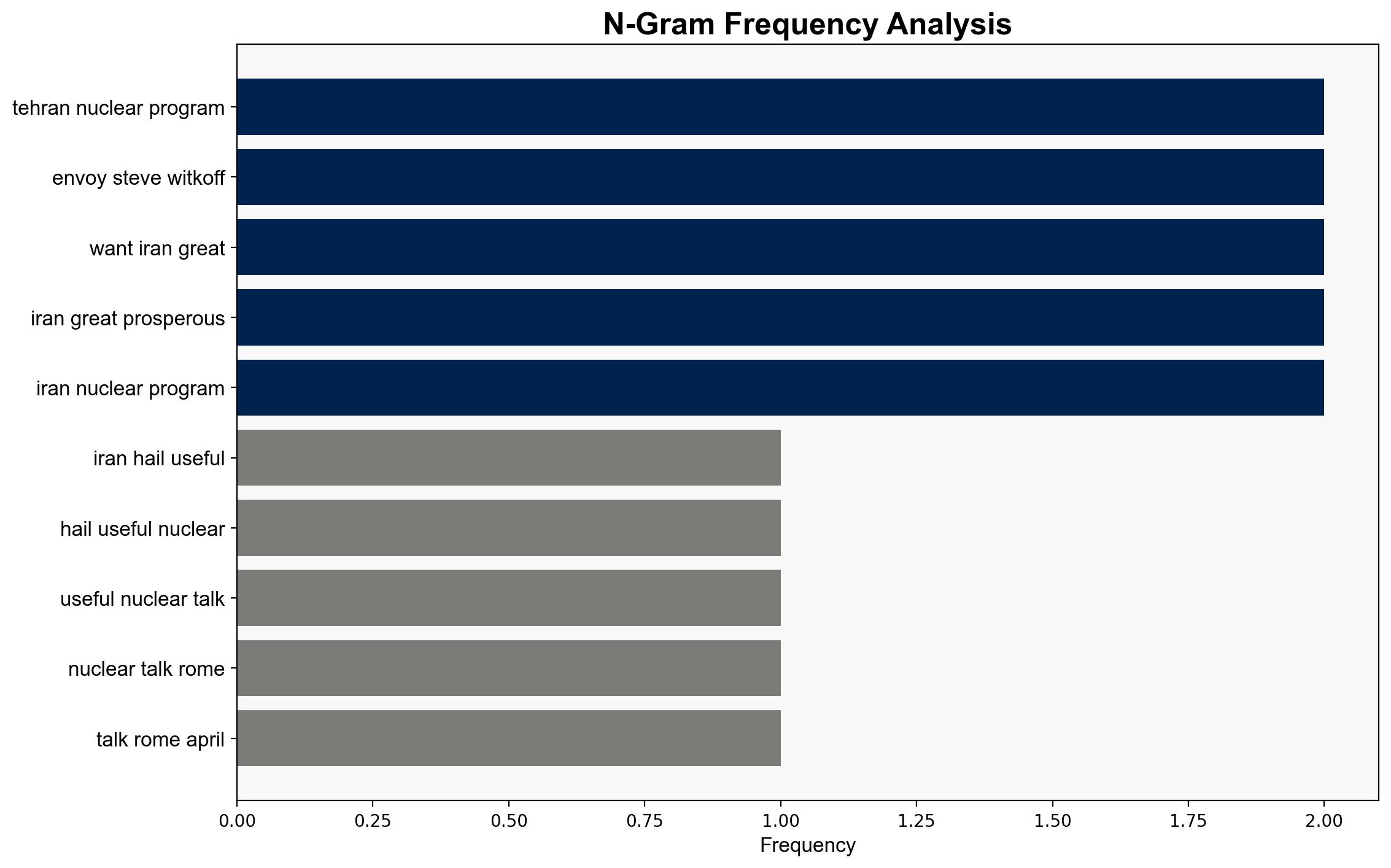Iran hails ‘constructive’ nuclear talks with US in Rome – DW (English)
Published on: 2025-04-19
Intelligence Report: Iran hails ‘constructive’ nuclear talks with US in Rome – DW (English)
1. BLUF (Bottom Line Up Front)
Recent nuclear talks between Iran and the United States in Rome have been described as constructive by Iranian officials. The discussions, which are part of ongoing indirect negotiations, aim to address concerns over Iran’s nuclear program. The talks are seen as a positive step towards potentially reaching a new understanding, although significant challenges remain, particularly regarding uranium enrichment and sanctions relief.
2. Detailed Analysis
The following structured analytic techniques have been applied:
SWOT Analysis
Strengths: The willingness of both parties to engage in dialogue indicates a mutual interest in resolving nuclear tensions. The involvement of mediators like Oman enhances the credibility and potential success of the talks.
Weaknesses: Historical distrust and previous failures to reach lasting agreements pose significant barriers. Iran’s insistence on its right to a nuclear program for civilian purposes remains a contentious issue.
Opportunities: Successful negotiations could lead to the lifting of economic sanctions on Iran, improving regional stability and economic conditions.
Threats: Failure to reach an agreement could escalate tensions, potentially leading to military confrontations or further destabilization in the Middle East.
Cross-Impact Matrix
The outcome of these talks could significantly impact regional dynamics. A successful agreement may reduce tensions between Iran and neighboring countries, while failure could embolden hardline elements in Iran and increase regional instability.
Scenario Generation
Scenario 1: Successful negotiations lead to a new agreement, easing sanctions and reducing nuclear proliferation risks.
Scenario 2: Talks stall, resulting in increased sanctions and heightened regional tensions.
Scenario 3: Partial agreement is reached, with limited sanctions relief and ongoing negotiations on unresolved issues.
3. Implications and Strategic Risks
The continuation of talks suggests a potential shift towards diplomatic resolution, but the risk of failure remains high. The strategic risk includes the possibility of Iran advancing its nuclear capabilities if talks collapse, which could prompt a regional arms race or military interventions.
4. Recommendations and Outlook
- Encourage sustained diplomatic engagement and support mediation efforts to build trust between parties.
- Prepare contingency plans for scenarios where talks fail, including diplomatic and economic measures to contain potential fallout.
- Monitor regional responses to negotiations closely to anticipate shifts in alliances or escalations.
5. Key Individuals and Entities
Abbas Araghchi, Steve Witkoff, Badr bin Hamad al Busaidi, Donald Trump, Rafael Grossi.





